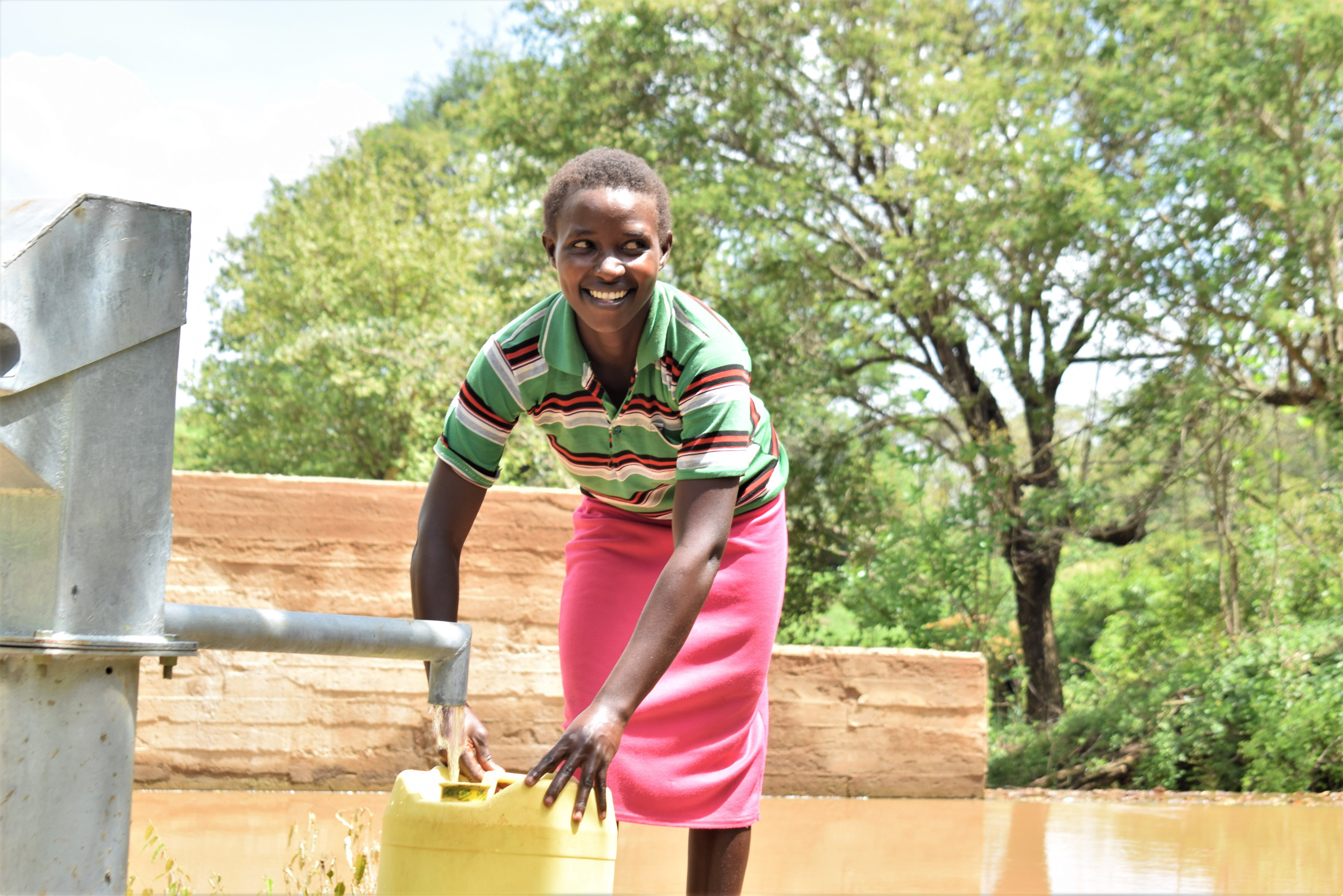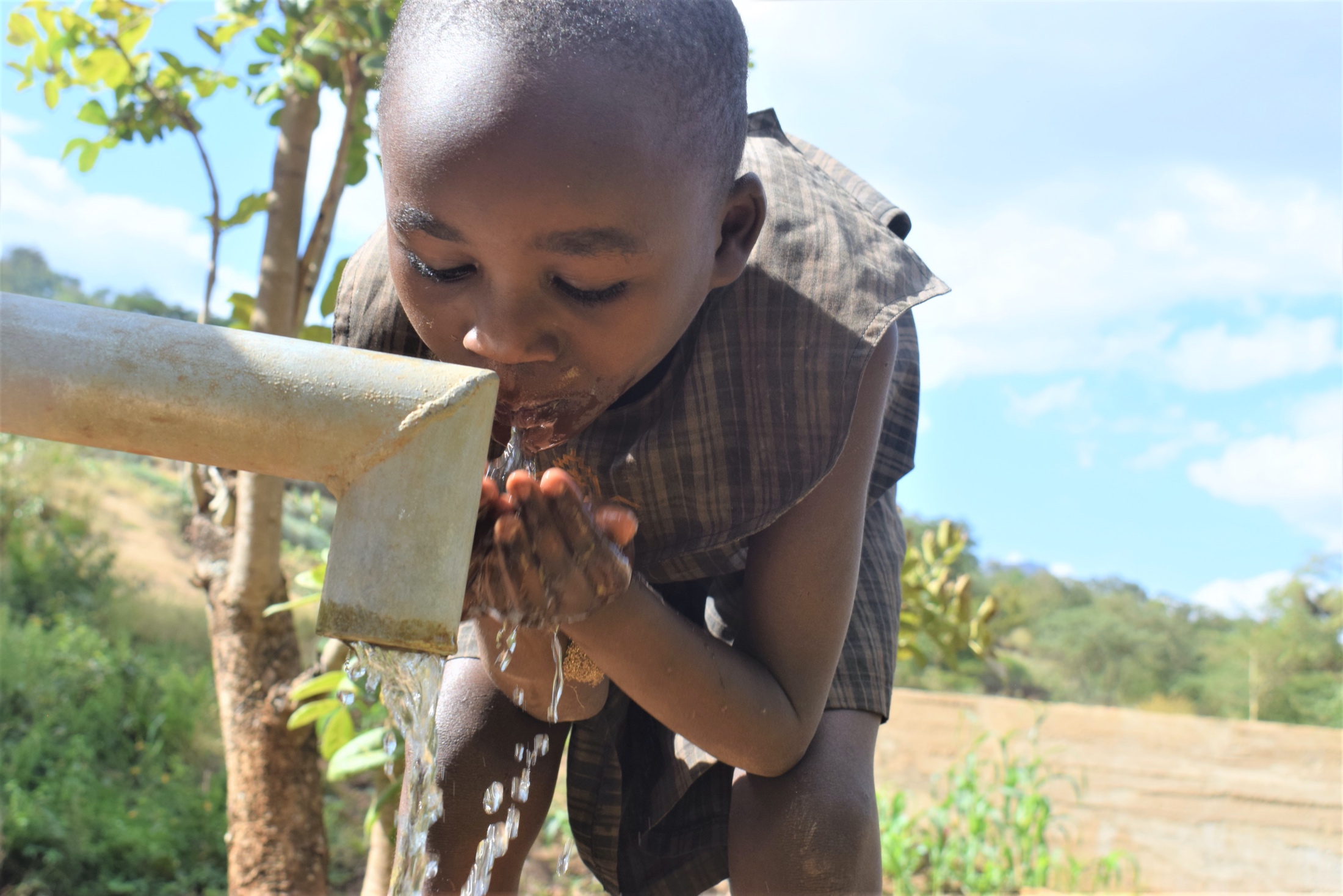No more stress during the dry season
At a time like this in previous years, Masaani community members would be stressed out due to water scarcity as a result of the lingering drought. In this region of Southeastern Kenya, dry spells are increasingly common due to the effect of climate change on the region.
However, in the past year, such concerns have never come to a head thanks to the sand dam and hand-dug shallow well systems they constructed over the past 3 years.
Their water sources have been providing plenty of clean water to the residents throughout the year. The water is fresh and very sweet for drinking, say community members.

We worked with the Kiluta Sand Dam Self-Help Group over 3 years to complete 3 sand dam and hand-dug well projects. For more than a decade, the dedicated members of this group have worked to collectively improve their lives. When we started working with them, people in this community traveled more than 3 miles to get water each day – a journey that took up to 5 hours between the walk and the time it took to get water.
“My mother would send me and my younger siblings to fetch water for bathing and washing my uniforms after school. The distance was too long and we would get really exhausted. At times, we would hide and not bathe or wash our uniforms,” said 7-year-old Mwendi.

Getting water at the scoop hole
Now, that is a problem of the past. The time expended in pursuit of water is now channeled to other, income-generating activities such as farming and businesses. For Mwendi, it means more time to be with her friends.
“Now that the distance has reduced and I enjoy fetching water, I also have time to play after school, do my homework, and catch up with my friends,” she said.

Mwendi drinks water from the well
Easy access to clean water has helped to transform this community. The availability of water has sustained a green and serene environment. Community members now engage in farming vegetables such as kale, spinach, tomatoes, green peppers, and coriander, which was a rare practice before.
“These days I perform my house chores very fast and I can also manage to farm and sell some products from my farm. Thanks to this project, I can sustain a living and meet most of my needs through the money I earn,” said Veronica Musaa.

Gardens thrive near the dam
On the day of our visit, our field staff met Kwame Martin and his brother Baraka Martin, watering their father’s vegetables which had been planted adjacent to the dam source. The 2 boys were very excited about the chore.
The availability of water has also resulted in improved hygiene and sanitation in their homesteads because the community members now bathe daily, have tippy taps erected outside their latrines for handwashing, and have nicely constructed latrine structures.
“I am very happy about this project because it has made my life easier,” said Mrs. Musaa.
Home More Like ThisTweet